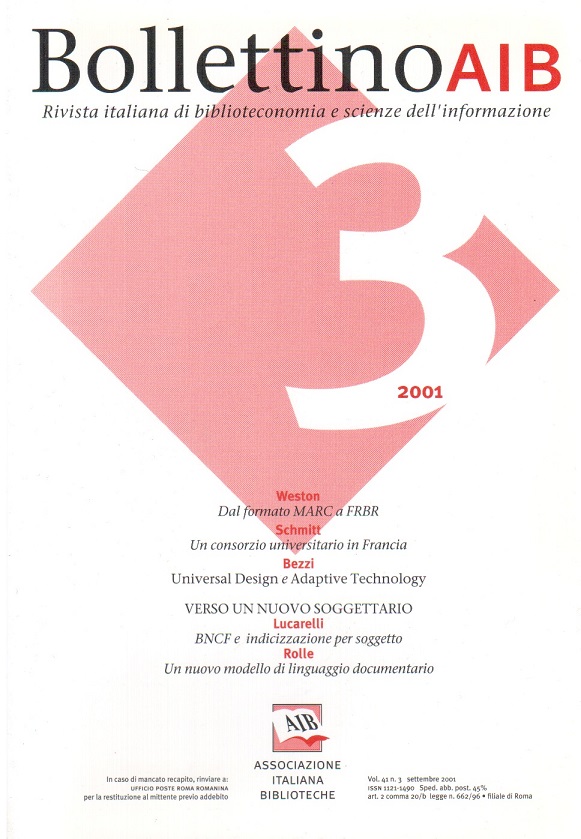COUPERIN: birth and development of a university consortium in France
Main Article Content
Abstract
The “periodicals' crisis”, experienced by all the scientific libraries, as well as being serious and scandalous, has ended up by also appearing absurd, because in the end nobody has profited: neither the libraries, incapable of dealing with this unreasonable inflation and of preserving their collections, in any case requested by their users; nor the researchers, faced with a limited documentary offer and a limited diffusion of their scientific communications; and not even the publishers, who after having at length advertised unprecedented advantageous (for some …) conditions, suffered mass waves of interruptions of subscriptions, not to mention the general dissatisfaction of the majority of professional persons in the field of information.
The Anglo-Saxon countries were the first to ask and impose a constructive cooperation with the publishers, thanks to the formation of consortiums, which became essential partners, due to their economic power. The rapid increase of consortiums at international level must not make us forget that this single term means different situations and experiences which all however illustrate the emergence of a real community of professional persons of the university libraries, determined to maintain their role within the era of digital information. COUPERIN, with its characteristics, represents the response of the French university libraries to this change.
The negotiation undertaken on behalf of COUPERIN respect some general principles and tend to impose some basic conditions:
The growth and rapid evolution of COUPERIN starting from its foundation in 1999 are the mark of the success of this initiative. The consortium is currently the largest economic partner of all the scientific information providers in France. But it is also a community of professional persons in the field of information that actively participates in a reflection on the evolution of scientific documentation, documentary practices and professional functions (in cooperation with institutional, university and economic partners).
The Anglo-Saxon countries were the first to ask and impose a constructive cooperation with the publishers, thanks to the formation of consortiums, which became essential partners, due to their economic power. The rapid increase of consortiums at international level must not make us forget that this single term means different situations and experiences which all however illustrate the emergence of a real community of professional persons of the university libraries, determined to maintain their role within the era of digital information. COUPERIN, with its characteristics, represents the response of the French university libraries to this change.
The negotiation undertaken on behalf of COUPERIN respect some general principles and tend to impose some basic conditions:
- unlimited and permanent site-wide access;
- a main access control based on IP dominions;
- rossed accesses or an access to the entire catalogue;
- a “reasonable” surcharge for electronic accesses. COUPERIN also wants to be a partner of the big publishers in the study of new economic models;
- a limited and foreseeable increase of costs for subscriptions.
- offer one's users a permanent and remote access, first and foremost to the complete text of the electronic magazines, then to other electronic documents and be able thus to better absolve the task of supplying documents to all teachers, researchers, graduate students, advanced students, and improve the documentary research of those who exercise their activity in transversal subjects;
- negotiate with the publishers licences of access and more favourable economic conditions;
- share subscriptions, thus guaranteeing the documentary coverage of the partners;
- within universities with a number of branches, render access to the document equal for everyone;
- permit members to choose, among the agreements negotiated, those which interest them.
The growth and rapid evolution of COUPERIN starting from its foundation in 1999 are the mark of the success of this initiative. The consortium is currently the largest economic partner of all the scientific information providers in France. But it is also a community of professional persons in the field of information that actively participates in a reflection on the evolution of scientific documentation, documentary practices and professional functions (in cooperation with institutional, university and economic partners).
Article Details
Section
Articles

This work is licensed under a Creative Commons Attribution-ShareAlike 4.0 International License.
